- Home
- Quizzes
- My Quiz Activity
- Newsletters
- MY FAVORITES
- Add Sports/Teams
- SPORTS
-
NFL
- NFL Home
- Arizona Cardinals
- Atlanta Falcons
- Baltimore Ravens
- Buffalo Bills
- Carolina Panthers
- Chicago Bears
- Cincinnati Bengals
- Cleveland Browns
- Dallas Cowboys
- Denver Broncos
- Detroit Lions
- Green Bay Packers
- Houston Texans
- Indianapolis Colts
- Jacksonville Jaguars
- Kansas City Chiefs
- Las Vegas Raiders
- Los Angeles Chargers
- Los Angeles Rams
- Miami Dolphins
- Minnesota Vikings
- New England Patriots
- New Orleans Saints
- New York Jets
- New York Giants
- Philadelphia Eagles
- Pittsburgh Steelers
- San Francisco 49ers
- Seattle Seahawks
- Tampa Bay Buccaneers
- Tennessee Titans
- Washington Commanders
-
MLB
- MLB Home
- Athletics
- Arizona Diamondbacks
- Atlanta Braves
- Baltimore Orioles
- Boston Red Sox
- Chicago White Sox
- Chicago Cubs
- Cincinnati Reds
- Cleveland Guardians
- Colorado Rockies
- Detroit Tigers
- Houston Astros
- Kansas City Royals
- Los Angeles Angels
- Los Angeles Dodgers
- Miami Marlins
- Milwaukee Brewers
- Minnesota Twins
- New York Yankees
- New York Mets
- Philadelphia Phillies
- Pittsburgh Pirates
- San Diego Padres
- San Francisco Giants
- Seattle Mariners
- St. Louis Cardinals
- Tampa Bay Rays
- Texas Rangers
- Toronto Blue Jays
- Washington Nationals
-
NBA
- NBA Home
- Atlanta Hawks
- Boston Celtics
- Brooklyn Nets
- Charlotte Hornets
- Chicago Bulls
- Cleveland Cavaliers
- Dallas Mavericks
- Denver Nuggets
- Detroit Pistons
- Golden State Warriors
- Houston Rockets
- Indiana Pacers
- Los Angeles Clippers
- Los Angeles Lakers
- Memphis Grizzlies
- Miami Heat
- Milwaukee Bucks
- Minnesota Timberwolves
- New Orleans Pelicans
- New York Knicks
- Oklahoma City Thunder
- Orlando Magic
- Philadelphia 76ers
- Phoenix Suns
- Portland Trail Blazers
- Sacramento Kings
- San Antonio Spurs
- Toronto Raptors
- Utah Jazz
- Washington Wizards
-
NHL
- NHL Home
- Anaheim Ducks
- Boston Bruins
- Buffalo Sabres
- Calgary Flames
- Carolina Hurricanes
- Chicago Blackhawks
- Colorado Avalanche
- Columbus Blue Jackets
- Dallas Stars
- Detroit Red Wings
- Edmonton Oilers
- Florida Panthers
- Los Angeles Kings
- Minnesota Wild
- Montreal Canadiens
- Nashville Predators
- New Jersey Devils
- New York Islanders
- New York Rangers
- Ottawa Senators
- Philadelphia Flyers
- Pittsburgh Penguins
- San Jose Sharks
- Seattle Kraken
- St. Louis Blues
- Tampa Bay Lightning
- Toronto Maple Leafs
- Utah Mammoth
- Vancouver Canucks
- Vegas Golden Knights
- Washington Capitals
- Winnipeg Jets
- NCAAF
- NCAAM
- Olympics
- Boxing
- Entertainment
- Lifestyle
- Golf
- MMA
- Soccer
- Tennis
- Wrestling
- Sports Betting
- More Sports
- RESOURCES
- My Account
- YB on Facebook
- YB on Twitter
- YB on Flipboard
- Contact Us
- Privacy Policy
- Terms of Service
Yankees SS Anthony Volpe answers tough questions amid slump
Volpe is having a nightmare season at the plate, but he still made himself available to the media following his latest hitless performance.

Trading for 19-year-old catching prospect could make Reds contenders
Reds president of baseball operations Nick Krall should be on the phone inquiring about Ethan Salas.

Phillies' J.T. Realmuto makes Mick Abel admission after latest outing
Realmuto has been in the league for a while, so he's no stranger to a pitcher struggling on the mound.

Stock up, stock down: Atlanta Braves
While it's easy to choose who's down for Atlanta, let's examine who's up for the Braves as well.
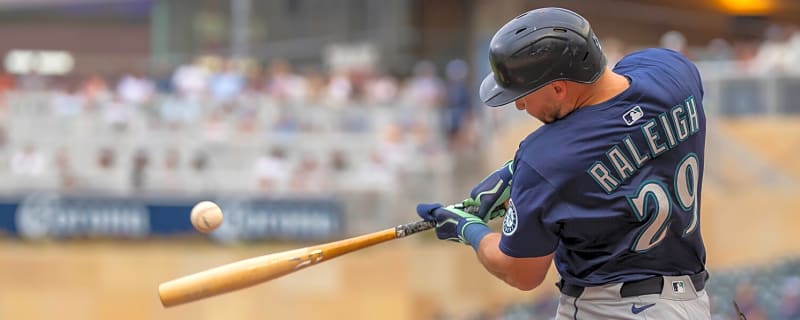
The '2025 MLB All-Star Starters' quiz
How many of the non-pitchers selected to start the 2025 MLB All-Star Game in Atlanta can you name in five minutes?

Trading Ryan McMahon will earn Rockies a clean slate
At some point, the Rockies must stop clinging to the past. Trading Ryan McMahon isn’t just a deadline move — it’s a long-overdue breakup.
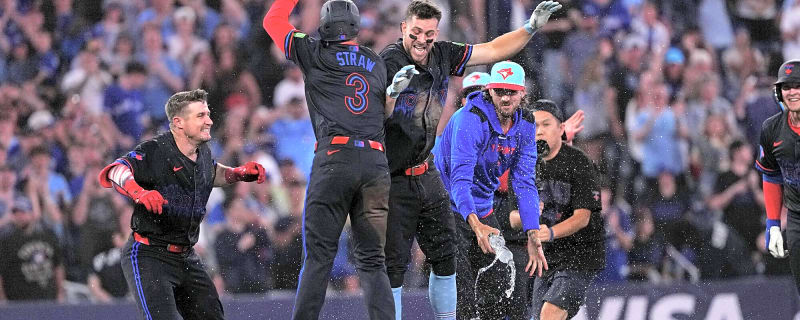
Blue Jays extend win streak, AL East lead in wild walk-off win
It's the Toronto Blue Jays' league right now, and everybody else just happens to be playing in it.

Latest Yankees injury makes rotation a trade-deadline priority
His absence leaves another gaping hole in the Yankees rotation.

Mariners' Cal Raleigh continues historic season with two more home runs
Seattle Mariners catcher Cal Raleigh just keeps on dumping baseballs over the wall.

Cubs' Pete Crow-Armstrong illustrates MVP case in Independence Day win
In honor of America's founding fathers signing the Declaration of Independence 249 years ago on July 4, 1776, Chicago Cubs centerfielder Pete Crow-Armstrong made his own bold declaration against the St. Louis Cardinals.

Former Phillies infielder Freddy Galvis announces retirement
Infielder Freddy Galvis announced his retirement on Friday in an Instagram post.

Phillies' Rob Thomson reacts to Zack Wheeler news
Right-hander Zack Wheeler of the Philadelphia Phillies is playing in his 11th major league season.

Three potential landing spots for Orioles OF Cedric Mullins
Let's take a look at three potential landing spots for Cedric Mullins as the MLB trade deadline looms.

Stock up, stock down: New York Mets
Who's up and who's down for the Mets as they look to reclaim the NL East crown?
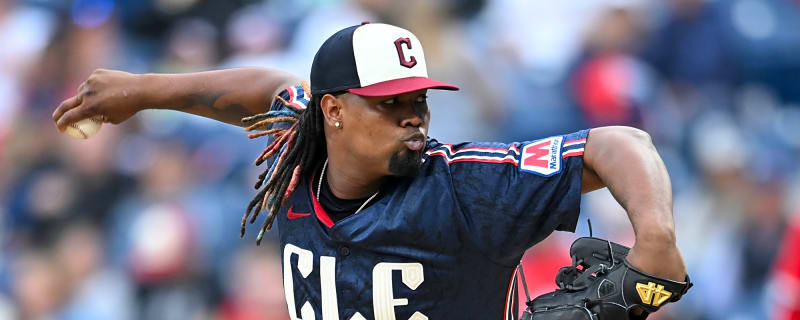
Report: Luis Ortiz gambling investigation focused on two specific pitches
Major League Baseball is investigating Cleveland Guardians pitcher Luis Ortiz over allegations related to gambling, and some new information about the probe has emerged.

Yankees announcer Michael Kay gives Blue Jays bulletin-board material
Kay's comments should be hanging in the clubhouse in Toronto.

Yankees suffer historic sweep in Toronto, continue rough stretch
What does this series say about the defending American League champions?

Guardians pitcher target of sports betting investigation
Pitcher Luis Ortiz was scheduled to start for the Guardians on Thursday. He may not return to the mound for the foreseeable future.

Just Baseball's midseason awards
Last week marked the technical halfway point of the 2025 MLB season. Soon we’ll reach the official halfway point, too, when the best of the NL and AL meet for the All-Star Game in Atlanta on July 15.

Blue Jays' sweep of Yankees shows they mean business in the AL East
We may have a Cinderella story on our hands north of the border.
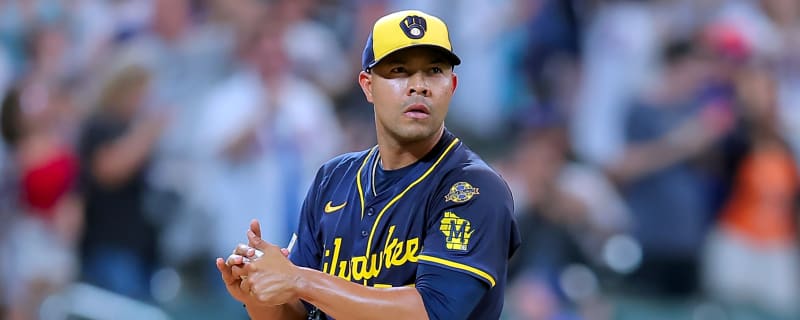
Jose Quintana's Citi Field return didn't go as planned in loss to Mets
Jose Quintana’s Citi Field return lasted a few batters too long.

Unexpected target could temporarily fill Yankees' void at third
The New York Yankees have been looking for an answer at third base over the past few years.
The 'MLB all-time strikeout leaders' quiz
How many of the 36 MLB pitchers with 2,500 or more strikeouts in the Live-Ball Era (since 1920) can you name in five minutes?
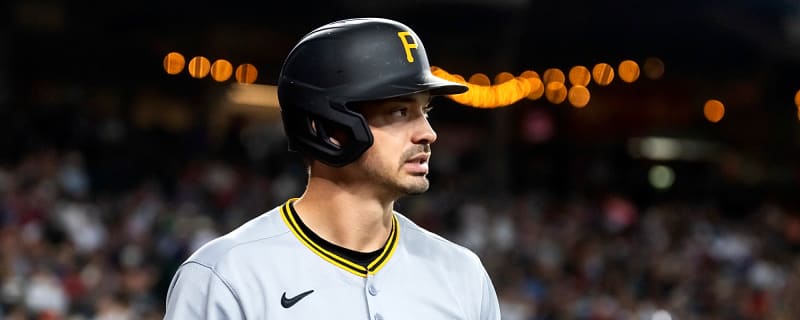
Royals reportedly eyeing long-term answer to outfield problems
The Royals have been looking for an upgrade to their outfield for years. A long-term solution could be on the way.
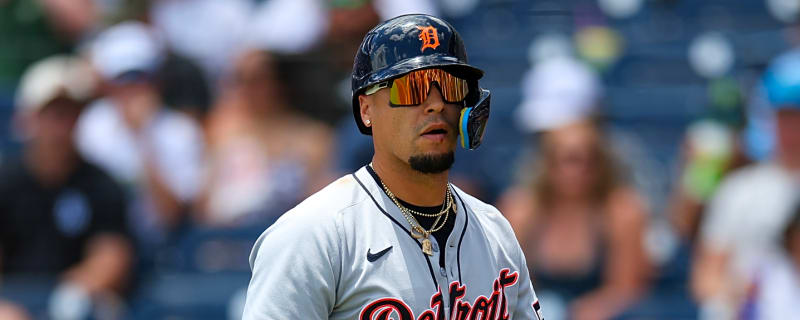
Failed 2021 trade will continue to haunt Mets in the 2025 All-Star Game
It's just another (painful) reminder to avoid desperation in summer trade talks.

Astros GM 'encouraged' by latest info on Yordan Alvarez's injury
It appears the Astros got some positive news on the injury that has sidelined a key slugger.
Breaking News
Trending News
My Favorites
Customize Your Newsletter
 +
+
Get the latest news and rumors, customized to your favorite sports and teams. Emailed daily. Always free!
PRIVACY POLICY EDITORIAL POLICY CONTACT US
ABOUT YARDBARKER TERMS OF SERVICE
Use of this website (including any and all parts and
components) constitutes your acceptance of these
Terms of Service and Privacy Policy.
This site is for entertainment purposes only.
There is no gambling offered on this site.
Gambling Problem? Call 1-800-Gambler.
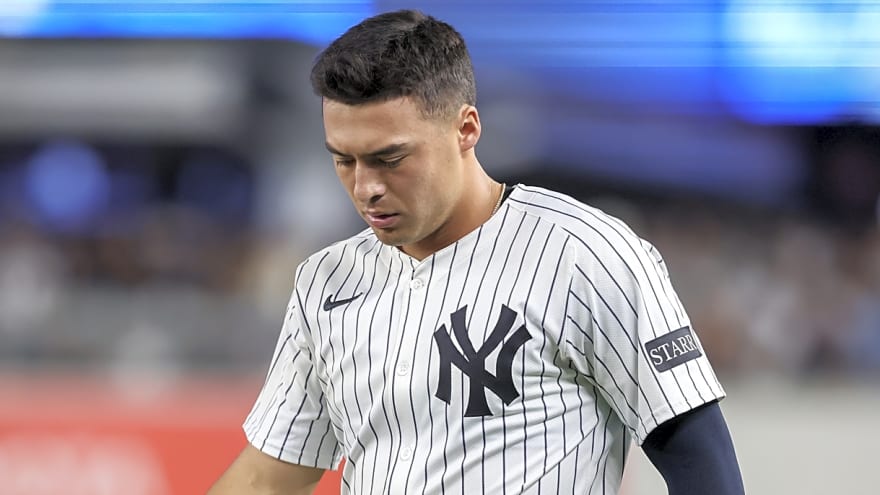
 Free Newsletters
Free Newsletters












